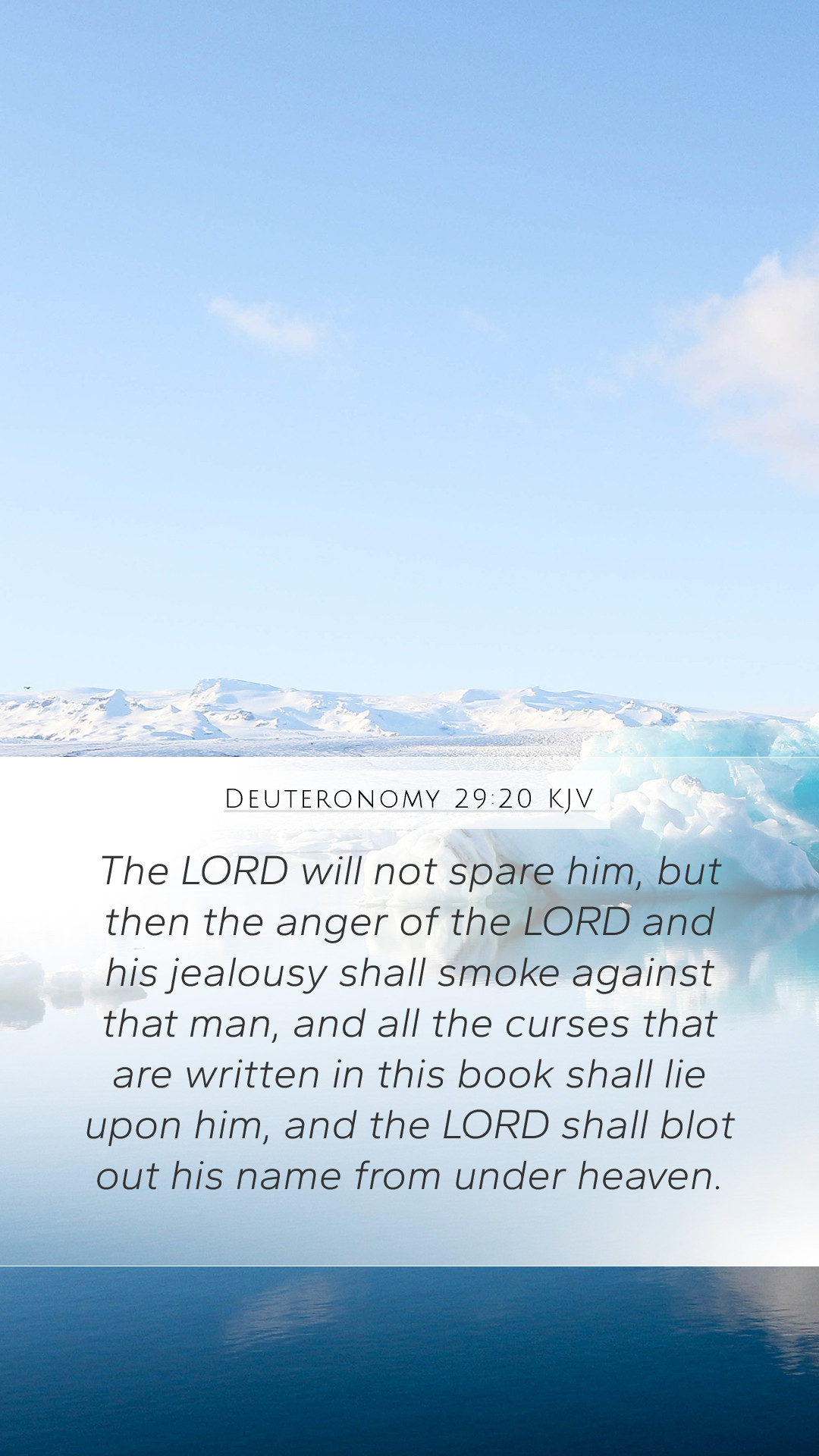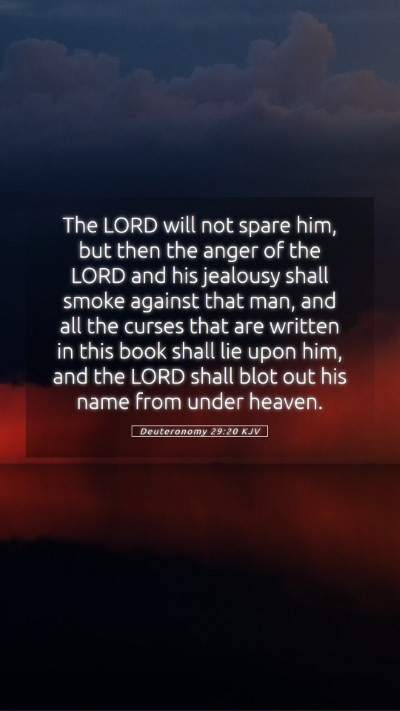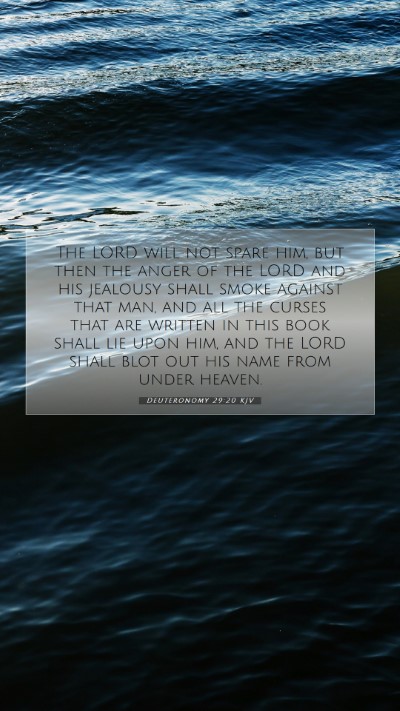Understanding Deuteronomy 29:20
Deuteronomy 29:20 states: "The LORD will not be willing to forgive him, but rather the anger of the LORD and His jealousy will burn against that man, and every curse that is written in this book will rest on him, and the LORD will blot out his name from under heaven." This verse serves as a stern warning regarding the consequences of rebellion against God and His covenant, emphasizing the seriousness of apostasy and unfaithfulness.
Bible Verse Explanation
This scripture is a part of a larger discourse where Moses emphasizes the importance of faithfulness to God’s commandments. The verse specifically addresses those who would turn away from God, serving as a reminder that such actions provoke divine wrath.
Key Insights from Public Domain Commentaries
-
Matthew Henry's Commentary:
Henry reflects on the gravity of breaking the covenant with God. He points out that this verse depicts the consequences of turning away from God and the seriousness with which God addresses sin. The mention of God's anger and jealousy highlights His passionate commitment to His people.
-
Adam Clarke's Commentary:
Clarke discusses the implications of God's refusal to forgive. He emphasizes that God's vengeance against apostasy demonstrates the importance of maintaining one's loyalty to God. Clarke also points out the significance of being recorded in God's book, suggesting that those who turn from Him risk being erased from the community of the faithful.
-
Albert Barnes' Notes:
Barnes elaborates on the symbolism of divine jealousy and the fiery nature of God's wrath. He reflects on the implications of covenant unfaithfulness not only for individual sinners but also for the entire community. Barnes highlights the historical context of Israel's covenant relationship with God, illustrating why such a warning was relevant and necessary.
Applications in Contemporary Life
The themes presented in Deuteronomy 29:20 continue to resonate with modern believers. The notion of God's unwavering commitment to His covenant invites reflection on how individuals today can also stray from their faith. This verse urges believers not just to avoid sin, but to engage actively in their relationship with God, reflecting on their faithfulness through their actions and choices.
Cross References
- Leviticus 23:29 - Discusses the necessity of seeking the Lord.
- Hebrews 10:26-27 - Warns against willful sin after receiving the truth.
- Ezekiel 18:24 - Addresses the consequences of turning away from righteousness.
Conclusion
In conclusion, Deuteronomy 29:20 serves as a stark reminder of the seriousness of remaining faithful to God and the consequences of apostasy. By understanding this scripture through Biblical exegesis and careful study, believers can better appreciate the depth of God's love, jealousy, and desire for a faithful relationship with His people.


